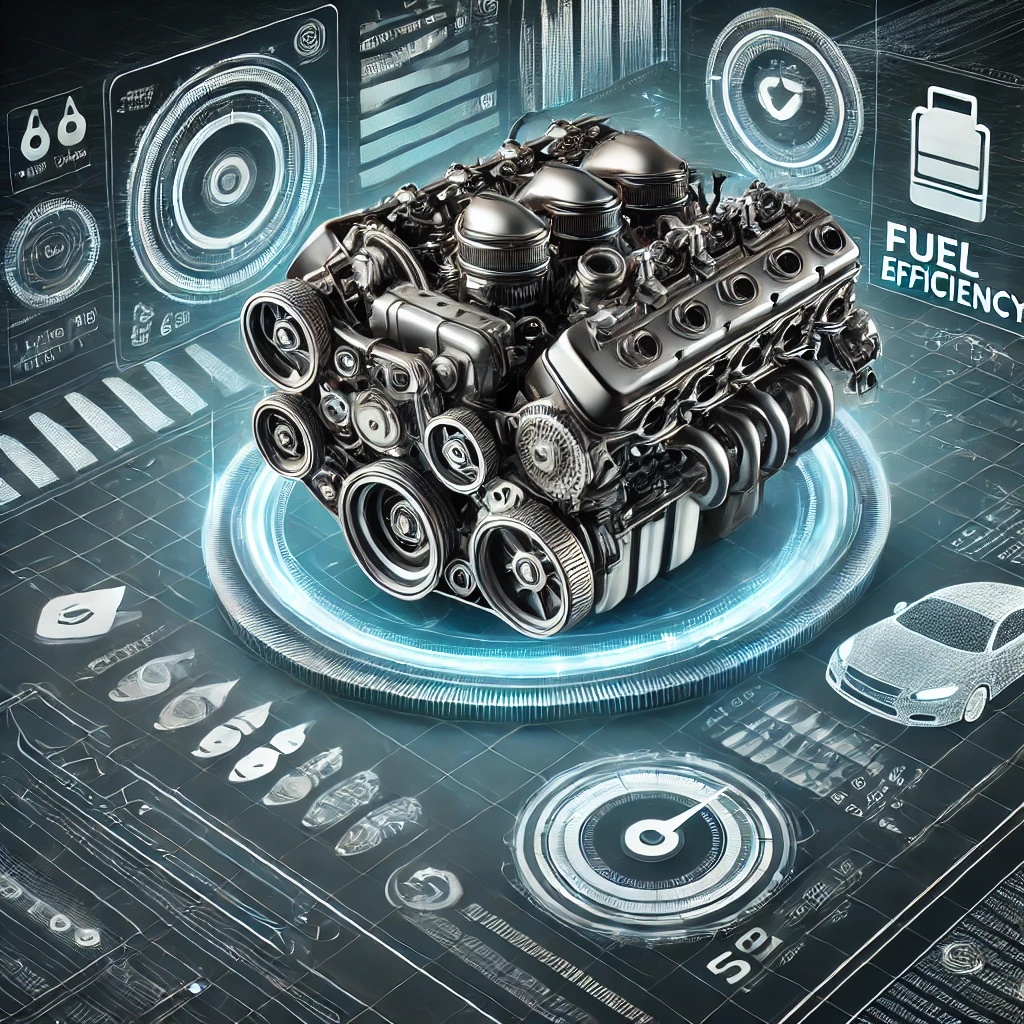Car Engines: Performance, Efficiency, and Technological Advancements

In the automotive world, engines can be considered the heart of a vehicle. The engine is the most important component that determines a car’s power and performance. In recent years, advancements in engine technology have significantly altered both the driving experience and environmental impact. In this blog post, we will explore the performance, efficiency, and technological developments in car engines.
Basic Functioning of an Engine
An engine in a vehicle is the primary component that converts the energy from fuel into motion energy to power the car. The basic operation of an engine, for internal combustion engines, usually consists of four main stages: intake, compression, ignition, and exhaust. This cycle is repeated in each cylinder of the engine, allowing the car to move. While internal combustion engines remain the most common type, with the rise of electric vehicles and hybrid systems, engine technologies are diversifying.
Performance: Power and Speed
The performance of the engine affects a vehicle’s acceleration capabilities, maximum speed, and overall driving experience. Engine power is typically measured in horsepower (HP), which indicates how much power the engine can produce, directly impacting acceleration.
Engines with high horsepower are generally found in sports cars and luxury vehicles. These engines can reach higher speeds by capturing more air and fuel mixture. However, higher performance usually increases fuel consumption. Therefore, modern engines are designed not only for power but also with fuel efficiency in mind.
Efficiency: Less Fuel, More Distance
Engine efficiency refers to how effectively an engine converts fuel into energy. Efficient engines travel longer distances with less fuel consumption. Fuel efficiency is crucial for reducing environmental impact, offering both economic and eco-friendly driving experiences. This efficiency is an important criterion for not only internal combustion engines but also hybrid and electric vehicles.
Various technologies have been developed to increase efficiency in modern car engines. For example, turbocharger systems increase engine power while improving fuel efficiency. Similarly, direct injection technology ensures more efficient combustion within the engine, leading to lower fuel consumption. Electric motors play a key role in environmental efficiency, as they operate with zero emissions.
Technological Developments: Electric and Hybrid Engines
In recent years, traditional internal combustion engines have been increasingly replaced by electric and hybrid engines. Electric motors are environmentally friendly as they operate with zero emissions and are much more efficient than traditional engines. Electric vehicles generally run on battery power, using electric motors that are much quieter and have high torque production capabilities.
Hybrid engines combine internal combustion engines with electric motors. Hybrid vehicles often run on electric motors for city driving and switch to internal combustion engines for longer trips. This improves fuel efficiency while expanding driving range.
Advanced autonomous driving technologies and AI-powered engine control systems also shape the future of engine technology. These technologies help engines work more efficiently and improve the overall driving experience. For instance, intelligent engine control systems adjust engine performance based on driving conditions, balancing power and efficiency.
The Rise of Electric Vehicles
Electric vehicles have gained significant momentum due to increasing environmental awareness and stricter emissions standards. Electric motors are eco-friendly, as they have zero emissions. These vehicles also generally have fewer moving parts, reducing maintenance costs. As the battery capacity of electric vehicles increases, so does their range, making them more efficient for both daily use and long trips.
Brands like Tesla have pioneered groundbreaking innovations in electric motor technology, making a significant impact worldwide. Turkey’s local electric vehicle initiative, Togg, aims to contribute greatly to Turkey’s automotive sector through electric motor technology.
Conclusion: The Future of Engine Technologies
Car engines not only determine a vehicle's power but also affect the quality of the driving experience. With rapid technological advancements, engines are becoming more efficient, powerful, and eco-friendly. The shift from internal combustion engines to electric and hybrid motors is fundamentally changing the automotive industry.
Electric motors play a key role in producing zero-emission, silent, and efficient vehicles, while internal combustion engines are becoming more eco-friendly through innovative technologies. This transformation in engine technology not only helps protect the environment but also provides drivers with a more economical and comfortable experience.
In the future, vehicle engines will be shaped by not just power and speed but also efficiency, sustainability, and eco-friendly solutions. These technologies will herald a greener, more efficient, and smarter era in the automotive world.










